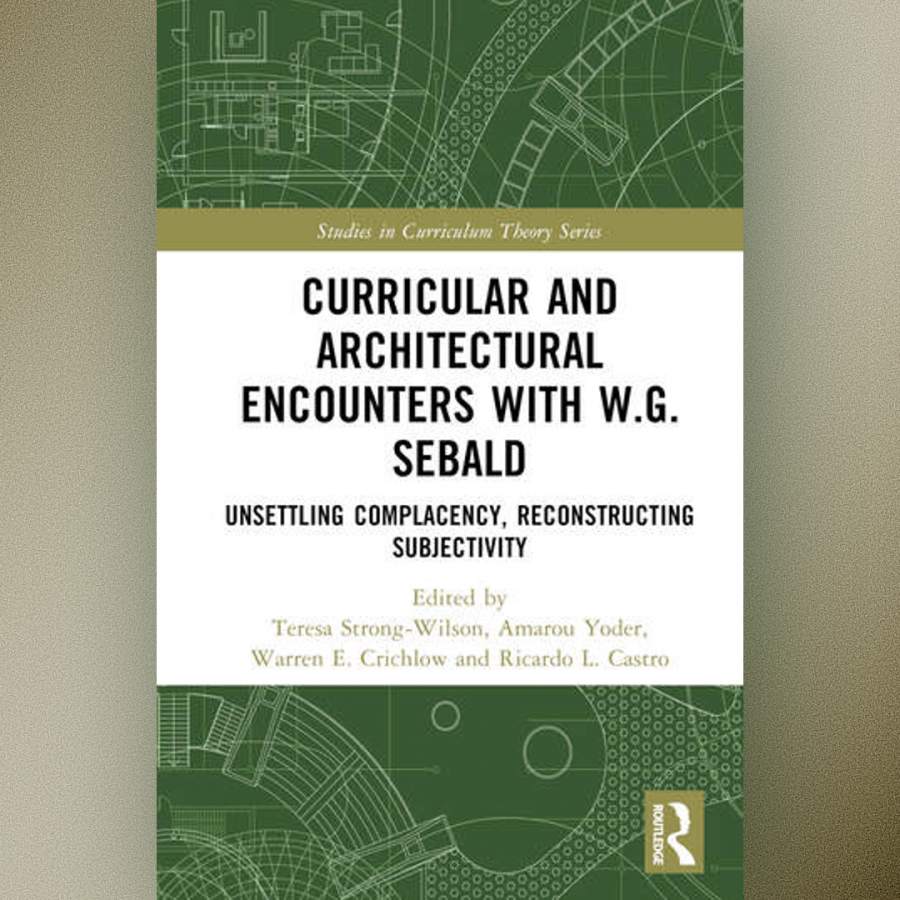Congratulations to A/CA member Warren Crichlow for his recently released book Curricular and Architectural Encounters with W.G. Sebald: Unsettling Complacency, Reconstructing Subjectivity. This edited collection is a new entry in Routledge's "Studies in Curriculum Theory Series" and was co-edited by Warren Crichlow, Teresa Strong-Wilson, Ricardo L. Castro, and Amarou Yoder.
See below for the full book description and table of contents, and/or visit the following link to access the book's page on the publisher's website:
Book Description
Curricular and Architectural Encounters with W.G. Sebald: Unsettling Complacency, Reconstructing Subjectivity
Edited By Teresa Strong-Wilson, Ricardo L. Castro, Warren Crichlow, Amarou Yoder
This book engages with the writings of W.G. Sebald, mediated by perspectives drawn from curriculum and architecture, to explore the theme of unsettling complacency and confront difficult knowledge around trauma, discrimination and destruction.
Moving beyond overly instrumentalist and reductive approaches, the authors combine disciplines in a scholarly fashion to encourage readers to stretch their understandings of currere. The chapters exemplify important, timely and complicated conversations centred on ethical response and responsibility, in order to imagine a more just and aesthetically experienced world. In the analysis of BILDUNG as human formation, the book illuminates the pertinent lessons to be learned from the works of Sebald and provokes further investigations into the questions of memory, grief, and limits of language. Through its juxtaposition of curriculum and architecture, and using the prose of Sebald as a prism, the book revitalizes questions about education and ethics, probes the unsettling of complacency, and enables conversation around difficult knowledge and ethical responsibility, as well as offering hope and resolve.
An important intervention in standard approaches to understanding currere, this book provides essential context for scholars and educators with interests in the history of education, curriculum architectural education and practice studies, memory studies, narrative research, Sebaldian studies, and educational philosophy.
Table of Contents:
1. Unsettling Complacency 2. Reconstructing Subjectivity Part I. Wandering 3. Sebald’s Natural Histories: Towards Ethical Responsibility in Writing and Teaching About Trauma 4. Following Sebald’s Unsettling Course: Syndetic Pilgrimage in Architectural Education and Practice 5. A Terrible Pleasure: Reading Sebald’s Austerlitz Part II: Encountering 6. Being Taught by Sebald’s Narrator in The Rings of Saturn: Transcendental Violence and the Work of Mourning 7. Colonizing Lands and Cultures: The London of Jemmy Button 8. Architecture and Archive: Postmemory Mediation in W. G. Sebald’s Austerlitz Part III. Unsettling Gazes 9. Unsettling Belonging: Reflections on Auto/biographical Structures of Ethical Self-Encounters 10. W. G. Sebald and Orientalism: Constructing and Unsettling the European Gaze toward Muslims 11. At Last Becoming Your Shell: Encountering Unsettling Figures of Animals and Nature in Sebald 12. Reading the Trace, Threshold, Waste, and Failure: Figures of Dreaming in Sebald’s Austerlitz Part IV: At the Roche Limit 13. Unsettling Time and Place: Sebald in Outport Newfoundland 14. Writing the Unwritable: Sebald, Haraway, and Creative Disobedience 15. Unsettling Place at the Threshold of Being: The Architectures of the Self in Austerlitz 16. After Hope: Empire, Ecocide, and Sebald's Steller's Bildung


